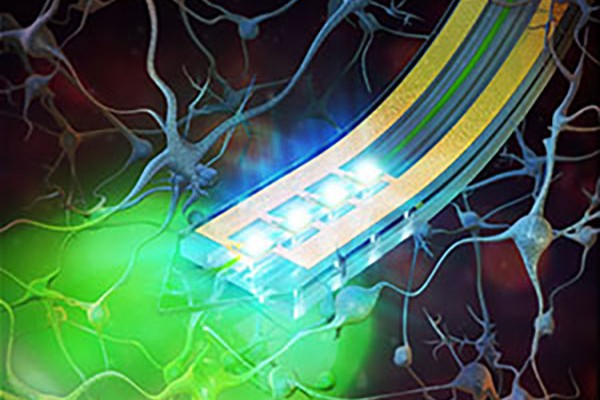Drastically cutting calories lowers some risk factors for age-related diseases
The largest study to date of sustained calorie reduction in adults shows that it does not produce all of the metabolic effects associated with longevity that have been found in animal studies. Severely cutting calorie intake, however, did appear to lower the risk of cardiovascular disease and make people more sensitive to insulin, according to John O. Holloszy, MD, principal investigator at the study’s Washington University clinical site.
New clues found to vision loss in macular degeneration
Scientists have identified a pathway that leads to the formation of atypical blood vessels that can cause blindness in people with age-related macular degeneration. The research, at Washington University School of Medicine in St. Louis, sheds light on one of the leading causes of blindness in industrialized countries and offers potential targets for treating the disease.
WashU Expert: Picking up the phone to improve mental health in seniors
A new study in JAMA Psychiatry shows that therapy provided via telephone for older adults in rural areas is effective in treating anxiety disorder. In an accompanying editorial, Eric J. Lenze, MD, of Washington University School of Medicine in St. Louis, wrote that the health-care system lacks the capacity to help the growing elderly population and that relying too heavily on sedative medications isn’t the answer.
Gastric bypass surgery lowers women’s alcohol tolerance
Women who have gastric bypass surgery to lose weight should keep a close eye on their alcohol consumption, according to a study at Washington University School of Medicine in St. Louis. The researchers found that changes in how alcohol is metabolized after surgery can speed its delivery into the bloodstream, resulting in earlier and higher peaks in blood-alcohol levels.
$15 million funds research to help older adults prevent cognitive decline
Researchers at Washington University School of Medicine in St. Louis, led by Eric J. Lenze, MD, have received a $15 million grant to study strategies — including exercise, health education, meditation and yoga — aimed at helping older adults prevent or reverse typical age-related cognitive declines.
Exploring the brain’s role in stress-induced anxiety
Calming a neural circuit in the brain can alleviate stress in mice, according to new research at Washington University School of Medicine in St. Louis that lays the foundation for understanding stress and anxiety in people. The researchers also showed they could shine a light into the brain to activate the stress response in mice that had not been exposed to stressful situations.
WashU Expert: Poverty’s most insidious damage is to a child’s brain
A study published July 20 in JAMA Pediatrics provides even more compelling evidence that growing up in poverty has detrimental effects on a child’s brain. Dealing with this must become “our top public health priority,” writes the School of Medicine’s Joan Luby, MD, in an accompanying editorial.
Device delivers drugs to brain via remote control
A team of researchers, including neuroscientists from Washington University School of Medicine in St. Louis, has developed a wireless device the width of a human hair that can be implanted in the brain and activated by remote control to deliver drugs to brain cells. The technology, demonstrated for the first time in mice, one day may be used to treat pain, depression, epilepsy and other neurological disorders in people by targeting therapies to specific brain circuits.
Potential treatment target identified for rare form of diabetes
Scientists working to find treatments for a severe form of diabetes called Wolfram syndrome have identified a gatekeeper in cells that prevents harmful molecules from spilling into places where they don’t belong and triggering cell death. The researchers, at Washington University School of Medicine, also found that the gatekeeper may be a good treatment target for other disorders caused by cellular stress.
Eye’s motion detection sensors identified
Studying mice, scientists at Washington University School of Medicine in St. Louis have identified a neural circuit in the retina that carries signals enabling the eye to detect movement. The finding could help in efforts to build artificial retinas for people who have suffered vision loss.
View More Stories


